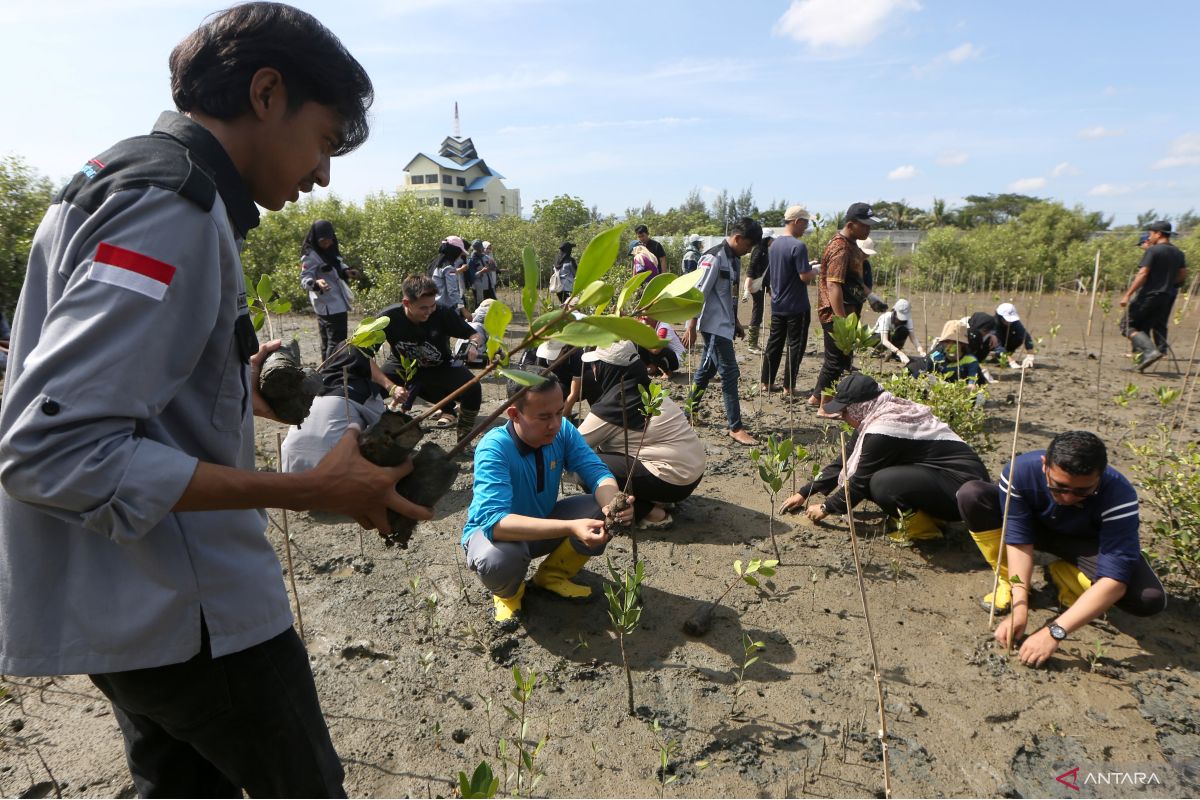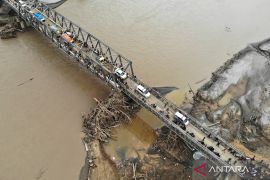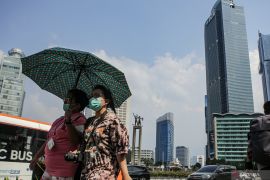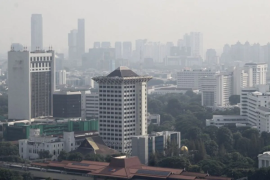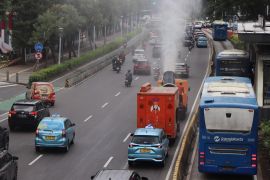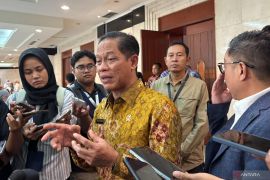Indonesia faces three planetary crises: climate change, pollution, and biodiversity loss.Jakarta (ANTARA) -
A series of demonstrations and riots in several regions of Indonesia at the end of August damaged a number of public facilities, including Transjakarta bus stops, toll gates, the Regional People’s Representative Council (DPRD) office, and even museum buildings.
These facilities were quickly repaired and returned to use within a week, as was the case with the Transjakarta bus stop. However, the same cannot be said for the environment.
Environmental pollution, land degradation, deforestation, and biodiversity loss are not public facilities that can be restored overnight. The process takes years, even decades, and it must begin now.
Minister of Environment Hanif Faisol Nurofiq emphasized the urgency of environmental restoration and biodiversity conservation. He reminded that Indonesia faces three planetary crises: climate change, pollution, and biodiversity loss.
A 2022 Intergovernmental Panel on Climate Change (IPCC) report stated that around 50–75 percent of the global population is potentially affected by climate change, with air pollution being the leading cause of disease and premature death worldwide, contributing to as many as 4.2 million deaths annually.
Meanwhile, a 2019 Intergovernmental Science-Policy Platform on Biodiversity and Ecosystem Services (IPBES) report highlighted that biodiversity loss threatens human health and ecosystem services, with around one million plant and animal species worldwide on the brink of extinction.
The impacts of these planetary crises are also felt in Indonesia. Data from the National Disaster Mitigation Agency (BNPB) recorded 3,472 disasters in 2024, with hydrometeorological disasters dominating at 3,449 incidents, mostly floods.
Although this number was lower than the 5,400 disasters recorded in 2023, their impact was more severe, particularly in terms of fatalities. In 2024, 603 deaths and missing persons were reported, compared with 308 in 2023.
In 2025, the BNPB Disaster Data Geoportal logged 2,362 disasters between January and September 10, the majority hydrometeorological, the most recent being the flooding in Bali this week.
In the forestry sector, forest and land fires (karhutla) remain a major challenge. According to SiPongi data from the Ministry of Forestry, fires burned 376,805 hectares in 2024, a sharp decline from 1,161,192 hectares in 2023. As of August 2025, the figure stood at 213,984 hectares.
On the positive side, the Environmental Quality Index (IKLH) rose slightly from 72.42 points in 2022 to 72.54 points in 2023. All indexes for air, water, and land quality improved, except the seawater quality index, which declined.
For air pollution specifically, motor vehicle emissions account for 42–57 percent of pollution during the dry season, while industrial activity contributes 14 percent.
Waste is another persistent problem. The National Waste Management Information System (SIPSN) recorded 35.01 million tons of waste in 2024, down from 43.2 million tons in 2023. However, only about 14 percent was managed, with most ending up in landfills or polluting the environment.
The threat of waste also lingers in Indonesia, with waste generation reaching 35.01 million tons in 2024, according to the National Waste Management Information System (SIPSN). This figure represents a decrease from the 43.2 million tons reported in 2023.
However, only around 14 percent of waste has been managed. The majority accumulates as pile of waste in landfill site (TPA), while the remainder ends up polluting the environment.
The Ministry of National Development Planning (BAPPENAS) confirmed Indonesia’s biodiversity status in 2024, listing 31,031 flora species and 744,279 fauna species, reaffirming its status as a mega-biodiversity nation.
Even so, the threat of biodiversity loss looms, with endangered species such as the Javan rhinoceros (Rhinoceros sondaicus) and the Sumatran tiger (Panthera tigris sondaica) under severe pressure from land conversion and habitat loss.
Related news: Govt protects productive agricultural land from land conversion threat
Recovery measures
Efforts at recovery have long been underway, including replanting, land rehabilitation, species conservation, and pollution reduction measures. From a forestry perspective, the government is promoting community-based initiatives through social forestry programs such as agroforestry and ecotourism.
Forestry Minister Raja Juli Antoni noted that social forestry ensures communities benefit economically from forest preservation, as their livelihoods are tied to these ecosystems.
From January to September 2025, a total of 11,065 Social Forestry Decrees (SK) were issued, involving 1.4 million forestry partnerships covering 8.4 million hectares.
The economic transaction value of forest farmer groups and social forestry enterprises reached Rp1.57 trillion (US$92 million) by the second quarter of 2025, a 32 percent increase from the same period in 2024.
By July 2025, 160 customary forests had been designated, covering 333,687 hectares, benefitting 83,000 households across 41 regencies in 19 provinces.
Reforestation also continues, with 217.9 thousand hectares rehabilitated in 2024, split between 71.3 thousand hectares within designated areas and 146.6 thousand hectares outside. Funding came from both state and non-state sources.
On species conservation, the government is focusing on Indonesia’s endemic species. This year, a Javan rhino translocation was carried out under Operation Merah Putih to create a second population.
Director General of Natural Resources and Ecosystem Conservation Satyawan Pudyatmoko explained that translocation is critical due to limited habitat capacity, low genetic diversity, and an inbreeding rate of 58.5 percent.
The ministry has also partnered with institutions such as IPB University to apply Assisted Reproductive Technology (ART) and biobank systems to preserve critically endangered species.
For pollution reduction, stricter monitoring has been introduced in industrial zones, especially around Greater Jakarta. Six industrial areas are under direct supervision, with PROPER (Company Performance Rating in Environmental Management) used to encourage corporate compliance.
For 2024–2025, PROPER will evaluate 5,476 companies, up from 4,495 in the previous cycle.
Priority is being given to companies in watershed (DAS) areas. Failure to comply will result in sanctions ranging from administrative measures to criminal charges.
Mangrove and peatland ecosystem protection is also a priority, with a government commitment to rehabilitate 769,824 hectares, recognizing mangroves as vital to developing a blue economy.
With reforestation, conservation, and pollution-control programs ongoing, the realization of a sustainable future will depend on collective awareness and concrete action.
Related news: Bali floods kill 18, VP Gibran calls for urgent land-use action
Related news: From hope to loss: Tari’s death and the fight to save elephants
Related news: Indonesia to end plastic pollution with or without treaty: minister
Editor: M Razi Rahman
Copyright © ANTARA 2025
